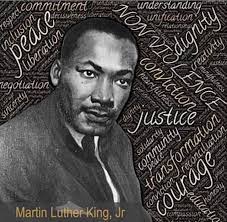Black History Month (Feb. 2023)
YGL celebrates Black History Month (Feb. 2023) and celebrated MLK and Lunar New Year during the first month of 2023!
YGL joins in paying tribute to a celebratory January and February Month! We are committed to advancing racial equity and upholding our nation’s commitment to the ideals of freedom for all.To commemorate these celebrations, YGL’s Diversity and Inclusion team members compiled resources for members to deepen their understanding and appreciation all cultures and communities.
Black History Month
Black History Month is an annual celebration of achievements by African Americans and a time for recognizing their central role in U.S. history. The Black History Month 2023 theme, “Black Resistance,” explores how “African Americans have resisted historic and ongoing oppression, in all forms, especially the racial terrorism of lynching, racial pogroms and police killings,” since the nation’s earliest days. Read more here.
2023 is the 60th anniversary of an especially eventful year in Black history and our Nation’s quest for civil rights: 1963. Besides being the year of the historic March on Washington where the Reverend Dr. Martin Luther King, Jr. delivered his “I Have a Dream” speech, 1963 also saw the integration of the University of Alabama (in spite of then Governor George Wallace’s “stand in the schoolhousedoor”), and the culmination of the Birmingham Campaign.
In the 1950s and early 1960s, the city of Birmingham, Alabama was known as the most segregated city in America. Additionally, dozens of unsolved, racially motivated bombings in those years had earned the city the nickname “Bombingham.”
The Birmingham Campaign was begun by the Reverend Fred Shuttlesworth and later joined by the Reverend Dr. Martin Luther King, Jr. and other leaders of the Southern Christian Leadership Conference. It consisted of a series of non-violent direct actions such as boycotts, sit-ins, and marches for the city’s desegregation. Local elected officials and law enforcement responded with mass arrests. In all, there were as many as 3,000 such arrests in a city whose jail had a capacity for 900. In April, one of those arrested was Dr.King, himself. It was during this time that he wrote his renowned Letter from Birmingham Jail, one of the most influential texts of the civil rights movement and the principle of civil disobedience.
In May, with limited space to continue jailing demonstrators, Birmingham’s Commissioner of Public Safety – the infamous Eugene “Bull” Conner – resorted to using high-pressure water hoses and canine squads to disperse protestors, including elementary and high school students. Widely broadcast images of children being water cannoned and set upon by police dogs shamed the conscience of our Nation and gained the attention of the world. On May 10, the city finally agreed to terms such as the desegregation of lunch counters, restrooms, drinking fountains and fitting rooms, the hiring of African Americans in certain occupations, and the release of jailed demonstrators.
However, this was not the end of the story. On the following day, May 11, those infuriated with the settlement responded by bombing both the Birmingham home of A.D. King, Sr. (the younger brother of Dr. King), and the Gaston Motel, the site from where campaign organizers had announced the settlement with the city. Most heartbreaking of all, Sept. 15 saw the bombing of another campaign meeting place, the 16th Street Baptist Church, killing four girls – Addie Mae Collins (aged 14), Denise McNair (aged 11), Carole Robertson (aged 14), and Cynthia Wesley (also 14). Such violence was not confined to just Birmingham. Inspired by the Birmingham Campaign’s success, Medgar Evers began organizing a similar campaign in Jackson, Mississippi. He was murdered on June 12.
On public display as never before, the barbarity of the reaction to peaceful protests during and after the Birmingham Campaign stirred a nationwide tide of empathy whose momentum led to passage of the Civil Rights Act of 1964 the following year.
It’s never too late to Celebrate…
YGL Celebrates the month of January!

History of Lunar New Year
Lunar New Year is an important public holiday for many countries including China, South Korea, Vietnam, Singapore, Malaysia, and Indonesia. In many other countries, Chinese communities celebrate in the city’s ‘Chinatown’ districts. Lunar New Year is a 15-day celebration marked by many traditions in honor of celebrating the arrival of spring and the beginning of a new year on the Lunisolar Calendar. Only the first 7 days of the 15-day celebration are considered a public holiday. If you celebrate Lunar New Year, how do you and yours celebrate it?

Honoring the Legacy of Rev. Dr. Martin Luther King (MLK), Jr.
On January 15th, 2023, we celebrated the life and legacy of MLK Jr. – which was a good time for all of us to revisit the legacy of Dr. King’s call to be a drum major for justice and to help build a nation that lives its founding values of justice and opportunity for all. Take a look at these past opportunities to serve– dedicated to volunteering our time to help others in our communities.
Origin and History
Martin Luther King, Jr., was a Baptist minister, husband, father, and social rights activist in the United States in the 1950s and 1960s. He was one of the most influential civil rights activists of our time through his acts of leading the American civil rights movement, organizing a number of peaceful protests as head of the Southern Christian Leadership Conference, including the March on Washington in 1963, and overall demonstrating resilience while facing racial discrimination.
Martin Luther King Jr was born on January 15, 1929, in Atlanta, Georgia and was assassinated on April 4, 1968, in Memphis, Tennessee. Years after his death, King remained the most widely known African American leader of his era. In his honor, the King memorial was built on the Mall in Washington, D.C, and The King Center was built in Atlanta, Georgia, and King’s historical significance lives on through the widely celebrated national Martin Luther King Jr. Day holiday which occurs every year, on the third Monday in January. MLK Day is a day honoring the civil rights leader and activist who fought for equal rights for all. In honor of his legacy, MLK Day is the only federal holiday that is dedicated to performing acts of service in our communities. As an ongoing tribute for King, the day is usually celebrated with marches and parades and with speeches by civil rights and political leaders.
Resources:
YGL Wishes you a wonderful month of February!
